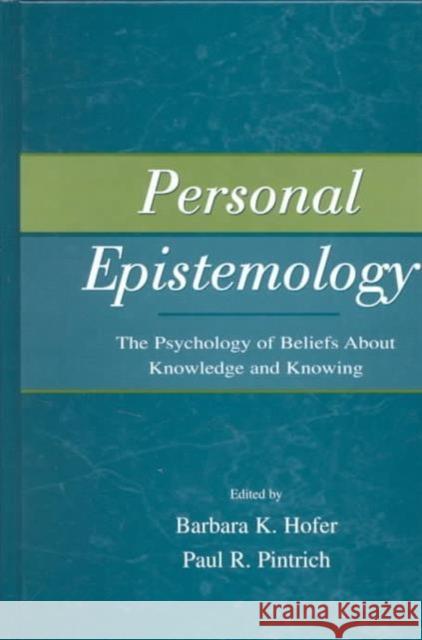Personal Epistemology : The Psychology of Beliefs About Knowledge and Knowing » książka
Personal Epistemology : The Psychology of Beliefs About Knowledge and Knowing
ISBN-13: 9780805835182 / Angielski / Twarda / 2001 / 448 str.
Personal Epistemology : The Psychology of Beliefs About Knowledge and Knowing
ISBN-13: 9780805835182 / Angielski / Twarda / 2001 / 448 str.
(netto: 666,90 VAT: 5%)
Najniższa cena z 30 dni: 654,86 zł
ok. 16-18 dni roboczych.
Darmowa dostawa!
This book provides an overview of the theoretical and methodological approaches to the study of personal epistemology from a psychological and educational perspective. The current models of personal epistemology are rich and varied, developed through decades of meticulous research, but they have yet to be discussed within one book. The first section provides an overview and update of the contributors' respective models. The second section includes new perspectives on theoretical and conceptual approaches to personal epistemology by addressing several challenging aspects of the underlying assumptions in the research on epistemology and offering provocative insights about areas that need the attention of researchers. In the third section, several contributors are engaged in designing new methodological approaches for the study of personal epistemology. The fourth section of the book reflects some of the most recent research on discipline-specific epistemology. Each section concludes with suggestions for future research. This book will be of interest to graduate and professional researchers, educational practitioners, teacher educations, science and math educators, and administrators
This is the first book to provide a comprehensive overview of the theoretical and methodological approaches to the study of personal epistemology from a psychological and educational perspective. Both theory building and empirical research have grown dramatically in the past decade but, until now, this work has not been pulled together in a single volume. That is the mission of this volume whose state-of-the-art theory and research are likely to define the field for the next 20 years. Key features of this important new book include:
*Pioneering Contributors--The book provides current perspectives of each of the major theoreticians and researchers who pioneered this growing field, as well as contributions from new researchers.
*Diverse Perspectives--The contributors represent a variety of perspectives, including education, educational psychology, developmental psychology, higher education, and science and mathematics education.
*Editorial Integration--Opening and closing chapters by the editors set out key issues confronting the field.











